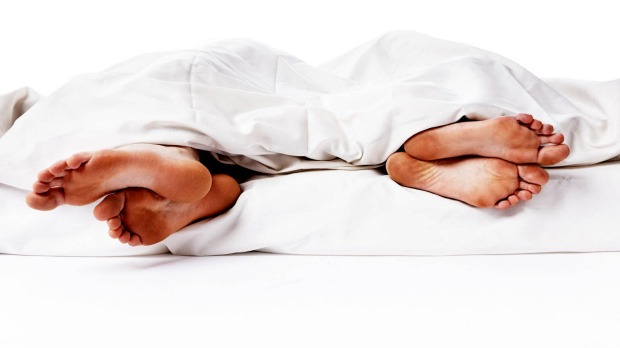
Women do not know enough about painful sex and where they can get help.
It might be a painfully embarrassing subject, but most health professionals feel women do not know enough about painful sex.
The Jean Hailes survey about women’s health knowledge found both health professionals and patients struggled with the awkward topic.
When asked about 25 women’s health topics, 80 per cent of the 527 nurses, community health workers and doctors surveyed said more information was needed about painful sex.

Painful sex ranked below seven other topics among women, with the safety of natural therapies and supplements identified as the area with the biggest knowledge gap.
Of the 2798 women who completed the self-selecting survey, 63 per cent felt painful sex was a topic they knew very little or nothing about.

Painful sex can have physical or psychological causes, and can occur in women before, during or after sex. The condition can be treated, and the pain can sometimes be a sign of skin infections or other illnesses such as endometriosis (tissue growth outside the uterus), ovarian cysts or irritable bowel syndrome.
It often goes unreported to doctors but as many as one in five women report experiencing pain during sex, with the highest rates among menopausal women and younger women.
Painful sex was one of the few areas of the survey where there was a mismatch between what health professionals and women considered knowledge gaps.
The head of education at Jean Hailes for Women’s Health, Mandy Deeks, said the topic was not really discussed. “It is an issue a lot of women experience and there needs to be more information out there and more awareness-raising as well,” she said.
“Women don’t tend to see it as much of an unmet need – maybe other things were a priority or maybe they didn’t think it impacted on their health as much as other things,” she said.
The director of the Latrobe University-based Australian research centre in sex, health and society, Jayne Lucke, said it was difficult to interpret the survey results.
“If someone has never experienced something – they have never even thought about sex being painful – they might have answered that they knew nothing about that,” she said.
She said one of the challenges in health care was knowing when and where to get information.
“That might be something that relates to the painful sex topic, where if everything is going fine you don’t even think about it. But if things start to get painful it might take a while to work out this is a real problem and to go see a doctor.”
Professor Lucke said painful sex was a topic women might not feel comfortable talking about with their doctor and that GPs could also feel awkward raising the subject.
She said women were likely to go on the internet for information about painful sex and needed access to quality material, which she said could be found on the Jean Hailes website.
One subject women feel they have enough information on is healthy eating and exercise, the survey indicates.
“They feel like they have got lots of information but they are worried about their weight, being tired all the time and getting enough physical activity. The next step for us is really drilling down and finding what is going on,” Dr Deeks said.
The nationwide survey was sent out to a large number of women who filled it out online. Just over half of the women who responded were aged between 40 and 60, with the majority of total responders based in Victoria or New South Wales.
Of the 527 health professionals, 27 per cent were nurses, 12 per cent were community health service workers, 8 per cent were chiropractors and 7 per cent were general practitioners.
